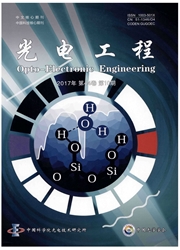

 中文摘要:
中文摘要:
针对传统均值漂移跟踪算法中采用的对称核函数模板中包含了较多背景像素点,影响跟踪精确度和稳定性的缺点,在固定非对称核函数的基础上对均值漂移跟踪算法进行了改进,提出了一种基于演化非对称核函数的均值漂移目标跟踪算法。本文算法首先介绍了将非对称核函数模板引用到均值漂移算法框架的关键问题——模板中心——的计算方法;其次将非对称核函数模板的表述和演化有机结合,提出了利用区域相似度的目标轮廓水平集演化算法并阐述了非对称核函数模板的更新策略。实验结果表明,相比现有的方法,本文提出的基于演化非对称核函数模板均值漂移跟踪算法具有更高的准确性和可靠性,同时也能满足一般目标跟踪任务的实时性要求。
 英文摘要:
英文摘要:
Aimed at the defect of the traditional mean shift tracking algorithm by using symmetric kernel function,which contains amounts of background pixels,an enhanced mean shift tracking algorithm is presented based on active asymmetric kernel to improve the tracking accuracy and stability.The paper firstly described the calculation method of template center which is the key issue in introducing asymmetric kernel function into mean shift algorithm framework.Then,to combine the expression and evolution of asymmetric kernel function,level set contour evolution algorithm using regional similarity is presented.Finally,the asymmetric kernel function update strategy is introduced.The above three points constitute the mean shift tracking algorithm based on evolutive asymmetric kernel function overall context.Experimental results show that compared to existing methods,the mean shift tracking algorithm based on evolutive asymmetric kernel presented has higher accuracy and reliability,as well as meets the real-time requirements of general tracking tasks.
 同期刊论文项目
同期刊论文项目
 同项目期刊论文
同项目期刊论文
 期刊信息
期刊信息
